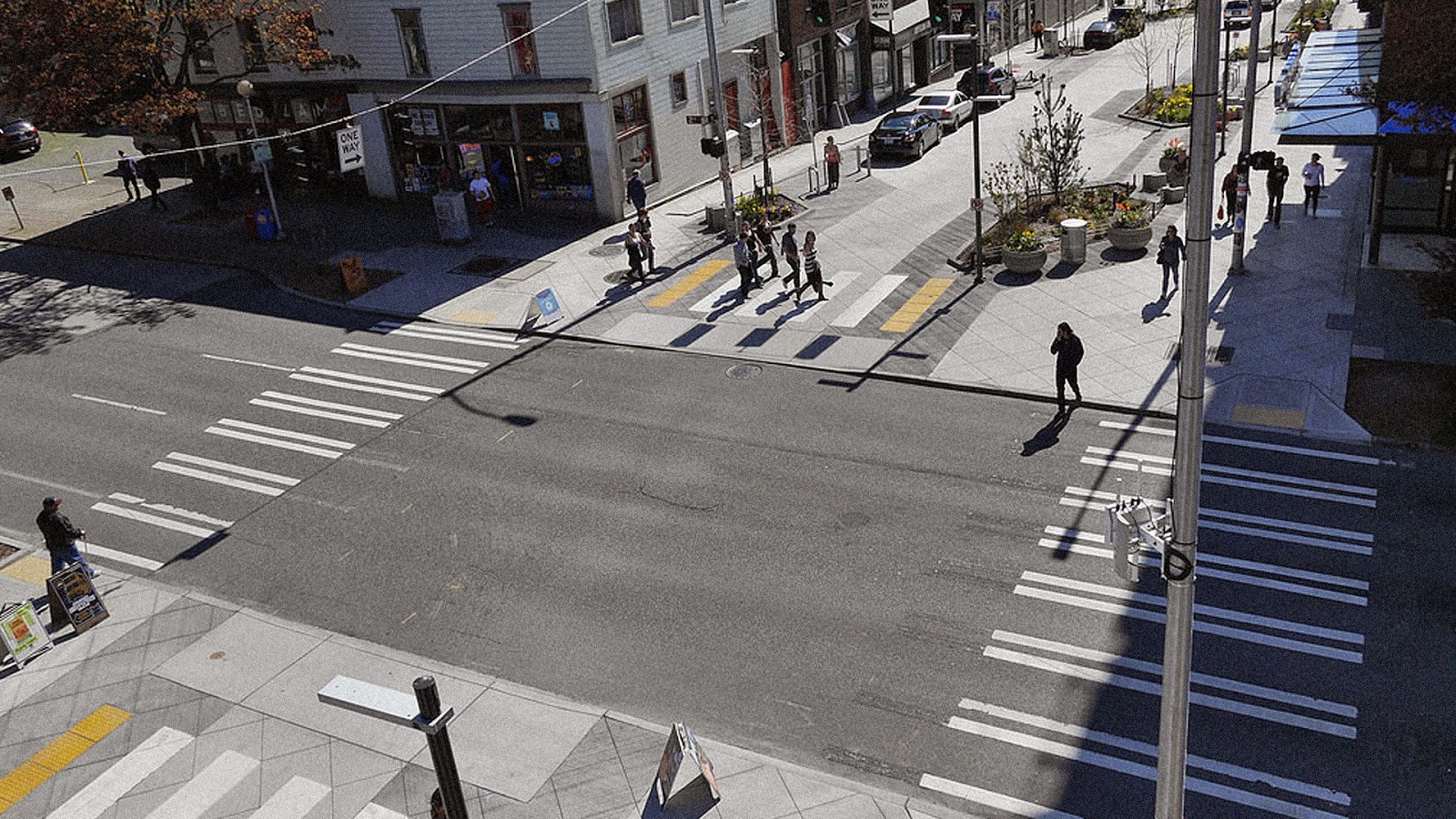On A New Shared Street In Chicago, There Are No Sidewalks, No Lights, And Almost No Signs
Chicago is about to take a gamble on a four-block stretch of town where drivers, cyclists, and pedestrians are all equal. It's not as crazy as it sounds.
Imagine a street with no sidewalks, no crosswalks, no curbs, no lane markings--basically no real distinctions between pedestrians, cyclists, and drivers at all. At first glance, that might seem like an extraordinarily unsafe street. But the city of Chicago is betting on its success as it redesigns a four-block stretch of its uptown.
The New York Times editorial board recently called the concept of shared streets a “radical experiment” for the city of Chicago, which plans to start construction on its first one on Argyle Street early next year. Yet the philosophy behind them--that by removing common street control features, street users will actually act less recklessly and negotiate space through eye-contact---is actually not all that new. Shared streets have been built and shown to be effective in reducing accidents in London already. In the U.S., shared streets exist in Seattle, Washington and Buffalo, New York.
The Chicago project came about as the city was looking to implement a normal street improvement project for Argyle Street, an active block with businesses and restaurants in a diverse neighborhood where many Vietnamese immigrants settled in the 1970s. The street had also shut down for the city’s first night market for the last two summers, and Alderman Harry Osterman, whose ward includes the area, says officials wanted to continue spurring the revitalization of the area. The lakefront bicycle path is only two blocks away.
After researching street designs all around the world, they were taken with the shared streets idea. “It’s a very innovative concept that we’re trying,” Osterman says. “We have spent the last two years really trying to build support from the community. ... One of the best parts of it is that it’s been a bottom-up approach to designing a street.”
Read on at FastCompany


Comments
Post a Comment